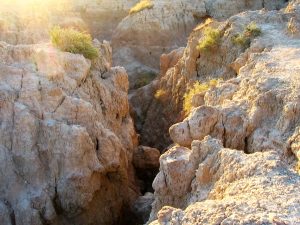1 Kings 18:1-15
But where sin increased, grace increased all the more… (Romans 5:20 NIV).
Sin had greatly increased in Israel, and it seemed like there was no hope. The Lord, their covenant God, had sent his prophet Elijah to announce a horrible drought, which was one of the curses, if Israel disregarded God’s covenant with him. The sky above you will be bronze, and the earth beneath you iron. The Lord will turn the rain of your land into falling dust; it will descend on you from the sky until you are destroyed (Deuteronomy 28:23-24). Yet, at this terrible time, the Lord showed his grrace. We see three evidences of his grace.
First, God preserved Elijah for further service to him. God had fed him at the brook and at Zarephath. The Lord also kept Ahab and Jezebel from killing his prophet. He also had taught Elijah valuable lessons about faith that he needed to know in service to God. Elijah was now prepared for the coming contest of God versus Baal on Carmel.
Second, the Lord placed Obadiah in Ahab’s court to protect other of his prophets. When we think all is lost, we can fail to see faithful people whom the Lord has placed near us to help us. Consider Obadiah’s character. He was a godly man (18:3). Like Joseph, Nehemiah and Daniel, Obadiah was faithful to God in a pagan palace. “There is nothing wrong in a child of God holding a position of influence if he can do so without the sacrifice of principle” (Pink). The Lord often has his saints in unlikely places, as in Caesar’s household (Philippians 4:22). We can be in the world and not of the world. Obadiah was consistent over a long period of time, for he had worshipped God since his youth (18:12). I am glad to see girls and boys in attendance, when their parents gather to worship the Lord. It is good to begin to serve God when you are young. Don’t let sin ruin you for years! Seek the Lord before the chains of sin harden around you and your mind is polluted with a great deal of sin. Think also of Obadiah’s accomplishments (8:4, 13). He hid the prophets and provided for them. He had bold faith. We thank God for those who have risked their lives to protect God’s persecuted people.
Third, God purposed to send rain again on the land. This was an act of sovereign mercy, for the people still had not called on him in repentance for their idolatry. If we need to wait for any nation to repent before God would act, there would be no hope for any people group. If we even had to wait for the professing church to return to him, we might despair. But God will have mercy on whom he will have mercy (Romans 9:15)! Our hope is in the Sovereign God, not in people! Remember this when you gather with others to pray. This was also an act of faithfulness to Elijah. The prophet had said that there would only be rain at his word (see 17:1), and so the Lord sent Elijah to announce the coming of rain. Here is a principle: God will honor those who honor him (cf. 1 Samuel 2:30).
Let us thank God for the godly who still remain in the nations of the world! Every follower of Christ is a witness to the power of God’s saving grace! If God could save you, my friends, he can save anyone. The salvation of the righteous comes from the LORD… (Psalm 37:39 NIV). Let us pray fervently for God to send a new great awakening. Greed, self-love and sexual immorality bind the wills of people. They will not come to him and have life (John 5:40). But King Jesus is able to break those chains, for he is the Great God and Savior! Now is the time to seek the Lord!
Grace and peace, David

 Ruth 1:3-5
Ruth 1:3-5